
Jonathan Thompson, MD, MS, explains how financial, insurance, and socioeconomic barriers limit equitable access to biomarker testing and advanced therapies, underscoring the need for provider advocacy and systemic support.

Jonathan Thompson, MD, MS, explains how financial, insurance, and socioeconomic barriers limit equitable access to biomarker testing and advanced therapies, underscoring the need for provider advocacy and systemic support.
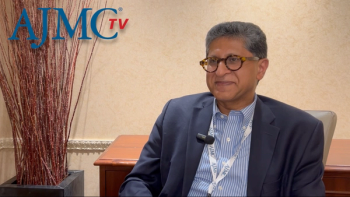
Ravi Vij, MD, MBA, explains how insurance-related delays in CAR T approval slow treatment initiation, increase interim therapy costs, and contribute to patient burden.

Brensocatib, the first FDA-approved dipeptidyl peptidase 1 (DPP1) inhibitor for non–cystic fibrosis bronchiectasis, may have broader potential for other neutrophil-driven conditions, according to James D. Chalmers, MBChB, PhD.

Treatment challenges that Anasuya Gunturi, MD, PhD, encounters in her work at Lowell General Hospital include language differences and confusion about scheduled appointments.
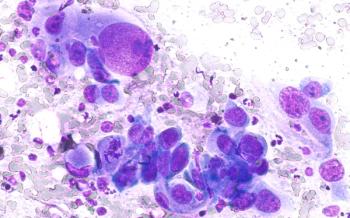
In advanced non–small cell lung cancer (NSCLC), discontinuing immunotherapy after 2 years can maintain durable responses while reducing financial and toxicity burdens, with decisions guided by residual disease testing and shared decision-making, explained Jonathan Thompson, MD, MS.

Making treatment for non–small cell lung cancer (NSCLC) accessible to a wide range of the population can help to improve outcomes from and knowledge of the condition.

James Chalmers, MBChB, PhD, highlights the reassuring safety and tolerability profile of brensocatib in patients with non–cystic fibrosis bronchiectasis.

Ravi Vij, MD, MBA, discusses the logistical differences between administering CAR T-cell therapy and bispecific antibodies, and how emerging CAR T technologies could affect patient access.

The American Society for Preventive Cardiology (ASPC) marked its 40th anniversary this year at the ASPC Congress on CVD Prevention in Boston, held August 1-3, with 3 days of debates, presentations, oral abstracts, and posters.

Jonathan Thompson, MD, MS, explains that adjuvant immunotherapy benefits patients with early-stage lung cancer with incomplete neoadjuvant response, while treatment decisions in the adjuvant setting must weigh efficacy, toxicity, and limited evidence.

James D. Chalmers, MBChB, PhD, explains that the ASPEN trial findings show that brensocatib reduces exacerbations, slows lung function decline at higher doses, and offers clinicians a long-awaited evidence-based treatment option.

Jonathan Thompson, MD, MS, highlighted that reducing delays in molecular testing and treatment initiation is critical for improving lung cancer outcomes, and that clinical trial data suggest immunotherapy duration can often be safely de-escalated in patients who achieve a complete pathologic response.
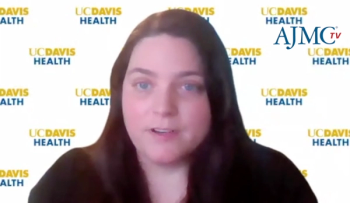
Jenny Craven, PharmD, BCPS, outlines the strategies UC Davis Health has used to successfully navigate the complex challenges of implementing cell and gene therapies.

A panel held during the Institute for Value-Based Medicine event in Chicago on August 14, 2025, included discussions of access to biomarker testing and perioperative treatment in patients with non–small cell lung cancer (NSCLC).
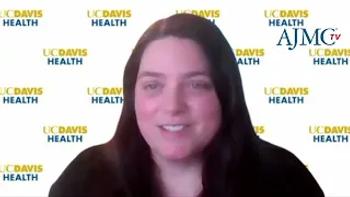
Health systems must prepare for the growing impact of cell and gene therapies by addressing their high costs, complex care pathways, and payer collaboration needs to ensure timely and sustainable patient access.

Deepak L. Bhatt, MD, MPH, MBA, of Mount Sinai Fuster Heart Hospital, spoke at the recent ASPC 2025 Congress on CVD Prevention to illustrate both the benefits and risks associated with renal denervation. Bhatt addresses the procedure in the context of lifestyle interventions and novel drug therapies.
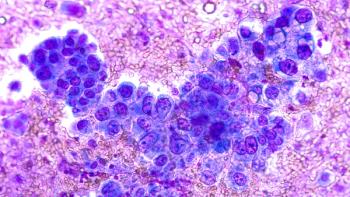
Jonathan Thompson, MD, MS, emphasized that broader molecular testing in early-stage non–small cell lung cancer (NSCLC) is essential to guide perioperative treatment decisions, while selective retesting at progression can identify resistance mutations or new targets to optimize value-based care.

Emilie Aschenbrenner, PharmD, BCOP, outlines how Froedtert Health and the Medical College of Wisconsin use outpatient-based care models, standardized protocols, and collaborative partnerships to improve cost-effectiveness, accessibility, and patient experience.

Jonathan Thompson, MD, MS, emphasized that comprehensive biomarker testing with next-generation sequencing and PD-L1 analysis—implemented as reflex testing at biopsy—is essential to guide precision therapy in lung cancer and to address persistent disparities in timely, equitable access to care.

From pump choices to TikTok trends, building trust with young patients means meeting them and their families where they are.

Clayton Irvine, PharmD, MBA, MS, discusses how pharmacists are essential to advancing payer–provider collaboration in value-based care by shaping formularies, standardizing drug reviews, leveraging real-world evidence, and leading pilot programs to optimize patient outcomes and cost-effectiveness.

Pediatric dermatology faces access disparities due to lack of awareness, language barriers, and training gaps in recognizing diverse skin conditions.

With growing roles in inpatient care and new telehealth models, pediatric pharmacists are reshaping how and where children receive specialized medication support, explained Marry Vuong, PharmD, BCPPS, of Perfecting Peds.
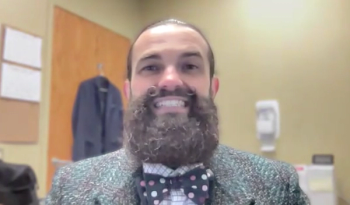
Shared decision-making helps dermatologists align treatment plans with patient needs, improving adherence and outcomes.

Despite its potential, incorporating new treatments like T-DXd into a first-line setting faces several barriers, explains Michael Hassett, MD, MPH, chief quality officer at Dana-Farber Cancer Institute in Boston.
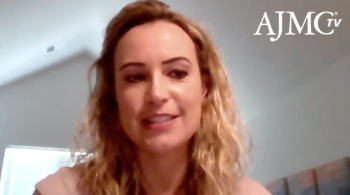
Emilie Aschenbrenner, PharmD, BCOP, highlights how measurable residual disease (MRD) testing can support value-based care in multiple myeloma by guiding personalized treatment intensity, potentially reducing costs and improving outcomes.

Clayton Irvine, PharmD, MBA, MS, emphasized that optimizing value-based access to cell and gene therapies requires standardized care protocols, coordinated transitions between care settings, careful evaluation of prior authorization and financial assistance options, and formulary decisions that balance clinical outcomes with both direct and indirect costs to patients and institutions.
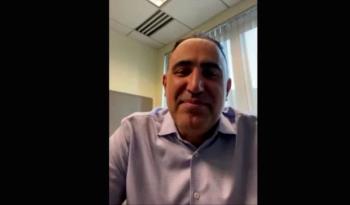
Amir Fathi, MD, leukemia specialist at Massachusetts General Hospital, discusses the importance of advocacy by both patients and their treatment team and key distinct toxicities that require vigilance.

Emilie Aschenbrenner, PharmD, BCOP, discusses how integrating CD38-targeted therapies into first-line treatment for transplant-ineligible multiple myeloma requires balancing clinical benefit, cost, and insurance coverage.

Clayton Irvine, PharmD, MBA, MS, discusses strategies to address payer-driven biosimilar and prior authorization challenges through integrated digital solutions, while advocating for flexible, regularly reviewed treatment pathways supported by molecular tumor boards and artificial intelligence to balance standardization with personalized, biomarker-driven oncology care.

259 Prospect Plains Rd, Bldg H
Cranbury, NJ 08512
© 2025 MJH Life Sciences®
All rights reserved.
